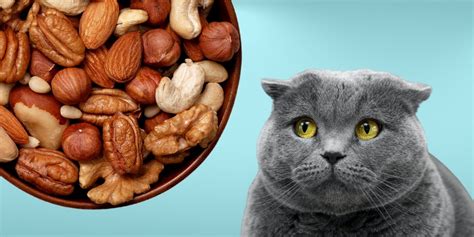Cats are known for their curious nature and love for exploring their surroundings, often leading them to investigate and taste various foods they come across. While it's natural to wonder if your feline friend can enjoy cashews as a snack, it's essential to consider the safety and health implications of feeding cashews to cats.
Cashews are a popular human snack, rich in nutrients and offering potential health benefits when consumed in moderation. However, the same cannot be said for cats. In this article, we'll delve into the details of cat nutrition, the potential risks associated with feeding cashews to cats, and provide guidance on safer, healthier snack options for your feline companion.
Understanding Cat Nutrition
Cats are obligate carnivores, meaning they require a diet rich in protein from animal sources to thrive. Their nutritional needs are different from those of humans and other animals, and their digestive system is specifically designed to process high amounts of protein and fat.
A balanced feline diet should include essential nutrients such as:
- Protein from animal sources (e.g., chicken, salmon, beef)
- Fat from animal sources (e.g., fish oil, chicken fat)
- Carbohydrates (e.g., fiber from plant sources)
- Vitamins and minerals (e.g., vitamin A, calcium, phosphorus)
The Risks of Feeding Cashews to Cats
While an occasional cashew might not harm your cat, regular consumption can lead to several health issues. Here are some potential risks to consider:
- Choking hazard: Whole cashews can be a choking hazard, especially for kittens or cats with small mouths.
- Allergies and intolerance: Some cats may be allergic or intolerant to cashews, which can cause symptoms such as itching, scratching, and digestive issues.
- Gastrointestinal upset: Cashews are high in fat, which can cause stomach upset, diarrhea, and vomiting in cats.
- Obesity and weight gain: Regularly feeding cashews to your cat can contribute to weight gain and obesity, as they are high in calories and fat.
- Nutrient imbalance: Feeding cashews as a regular snack can lead to an imbalanced diet, as they lack essential nutrients like protein and vitamins.

Healthier Snack Options for Cats
If you're looking for healthier snack options for your cat, consider the following:
- Freeze-dried chicken or beef: These protein-rich snacks are made from pure meat and are a great alternative to cashews.
- Canned tuna (in water): Tuna is a good source of protein and omega-3 fatty acids, but choose a variety that's low in mercury and packed in water.
- Pumpkin puree: Canned pumpkin is a fiber-rich, easily digestible snack that can help support your cat's digestive health.
- Catnip: Many cats enjoy catnip, which is a safe and healthy way to stimulate their senses.
Tips for Introducing New Snacks
When introducing new snacks to your cat's diet, follow these guidelines:
- Start with small amounts: Offer a small amount of the new snack to ensure your cat can tolerate it.
- Monitor for signs of allergy or intolerance: Watch for symptoms such as itching, scratching, or digestive issues.
- Gradually increase the amount: If your cat seems to enjoy the new snack, you can gradually increase the amount over time.

Conclusion
While cashews might seem like a tasty snack for your cat, it's essential to prioritize their health and safety. By understanding cat nutrition and the potential risks associated with feeding cashews, you can make informed decisions about your cat's diet.
Remember, a balanced and nutritious diet is crucial for your cat's overall health and well-being. If you're unsure about what snacks are safe for your cat, consult with your veterinarian for personalized advice.
Gallery of Cat-Friendly Snacks






FAQ
Can cats eat cashews at all?
+While an occasional cashew might not harm your cat, regular consumption can lead to health issues. It's best to avoid feeding cashews to your cat altogether.
What are some healthier snack options for cats?
+Consider snacks like freeze-dried chicken or beef, canned tuna (in water), pumpkin puree, and catnip. These options are nutrient-rich and safe for your cat to consume.
How do I introduce new snacks to my cat's diet?
+Start with small amounts, monitor for signs of allergy or intolerance, and gradually increase the amount over time. Always consult with your veterinarian if you're unsure about what snacks are safe for your cat.
